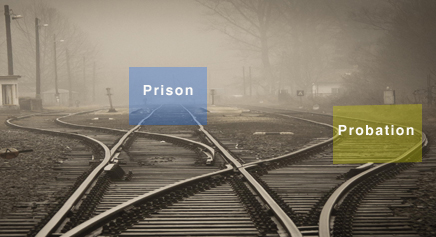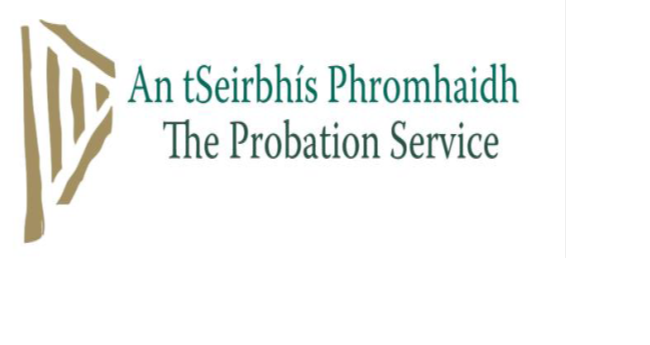Sentencing
Among the factors considered by the judge when sentencing are:
- Whether or not the offender pleaded guilty to the offence
- The facts of the offence - the circumstances in which the offence occurred
- Whether there were any aggravating factors in relation to the offence - such as particularly violent or cruel behaviour
- Previous criminal record
- Character
- Age
- Family circumstances
- Employment status
- Whether the offender is sorry for what they have done
- Whether certain types of treatment may help or reform the offender
- The impact of the offence on the victim
- Any other relevant information about the offender (for example, if you are in bad health)
Options available to the judge when sentencing:
1. Dismissal under the Probation of Offenders Act
2. A Probation Order
Definition: I n the District Court, if the judge has found that the facts of the case against the offender have been proved ─ but don’t proceed to a guilty finding ─ they can make a Probation Order. This puts an offender under the supervision of a Probation Officer for a period of up to three years. A Probation Order is not a recorded conviction.
Legal basis: Probation of Offenders Act 1907 ( Sections 2 (1), 2(2) and 2 (3) Criminal Justice Administration Act 1914, Sections 8 and 9
Section 115ff of the Children Act 2001
(Section 1(1)(ii) Probation of Offenders Act 1907)
Length of supervision: A Probation Order won’t be longer than three years in duration.
*Probation Orders made in the Circuit and Higher Courts under the Probation of Offenders Act 1907 are recorded convictions.
3. Community Service Order
Definition: Courts can order an offender to do between 40 and 240 hours of unpaid work in the community if the person is over 16 and been convicted of an offence, which otherwise would have involved a jail sentence. The community service should be performed in the period of one year beginning on the date of the Order.
Legal Basis: The Criminal Justice (Community Service) Act,1983 and Section 115 of the Children Act 2001. Section 115 of the Children Act 2001 allows for a Community Service Order under section 3 of the Act of 1983 as a community sanction for a child of 16 or 17 years of age who has been found guilty of an offence.
The Criminal Justice (Community Service)(Amendment) Act 2011: a court can order a Community Service Order (CSO) when someone has been convicted of an offence which would otherwise have involved a sentence of less than 12 months obliges a court, before which an offender stands convicted of an offence for which a sentence of up to twelve months is given.
Part 5 of the Fines (Payment and Recovery) Act 2014 makes provision for the requirement of an offender in particular to complete a specified number of Community Service under the Act of 1983 in lieu of payment of a fine.
On 11th January 2016 Minister for Justice and Equality, Frances Fitzgerald TD commenced the Fines (payment and Recovery) Act 2014. For more detail on the role of a CSO in the case of non-payment of fines, see Fines (Payment and Recovery) Act 2014.htm.
Length of Supervision: A Community Service Order must be completed within 12 months. The Court has authority to extend the period for completion.
4. Partially or fully suspended sentence with a condition of Probation Service supervision.
Definition: A partially suspended sentence means the court makes an order suspending the jail sentence in part ─ on condition of a person entering into a ‘recognisance’ or a promise to comply with the conditions of, or imposed, in relation to the order.
Legal basis: Section 99 (Power to suspend sentence) of the Criminal Justice Act 2006 as amended by section 60 of the Criminal Justice Act 2007 and section 51 of the Criminal Justice (Miscellaneous Provisions) Act 2009.
Length of supervision: The maximum length of supervision in determined by the maximum jail sentence for the particular offence(s).
5. Supervision Order under the Misuse of Drugs Act 1977
Definition: Section 28(2) of the Misuse of Drugs Act 1977 (as amended). If the court believes the welfare of the convicted person warrants it, it will allow a supervision order to be made instead of imposing any other penalty .
Legal basis: Misuse of Drugs Act 1977 (with subsequent amendments)
Length of supervision: No minimum or maximum period for a supervision order is provided in the legislation but for an order to be valid a specified period must be included in the order.
Post-custody supervision: As well as supervising offenders who have been placed on probation directly by the courts, the Probation Service provides different types of post-custody supervision, ie after a person has completed a prison sentence.
5.a Temporary Release from Custody with conditions of Probation Service Supervision
Definition: A person who is serving a custodial sentence shall be released from prison for a temporary period subject to certain conditions (which may include Probation Service Supervision) which are specified in the Direction.
Legal Basis: The Criminal Justice Act 1960 as amended by the Criminal Justice (Temporary Release of Prisoners) Act 2003.
Length of Supervision: The period of supervision is as determined by the decision and order of the Minister for Justice.
5.b Post Release Supervision Order
Definition: A Court that is imposing a custodial sentence on a person convicted of a scheduled sexual offence is obliged to consider whether or not to impose a sentence involving post-release supervision.
Such offenders are monitored closely and the work of the Probation Officer focuses on the offence committed and its implications for public safety, helping the offender to see the past offending behaviour as a problem and developing strategies and supports to ensure there is no repeat offending.
In making this determination the court must consider the need for the offender's rehabilitation, public protection and the likelihood of further offences being committed after release.
Legal basis: Part 5 of the Sex Offenders Act 2001
6. Adjournment on Supervision for a further progress report.
Failure to comply with supervision
Failure by an offender to comply with supervision will be addressed first with him or her by the Probation Officer and may lead to the case being returned to court. This can result in a custodial sentence or other sanction being decided upon by the court. In the case of temporary release, failure to comply with supervision may result in an immediate return to custody.
For a more detailed information of the options available to judges, please visit Supervised sanctions in the community.




